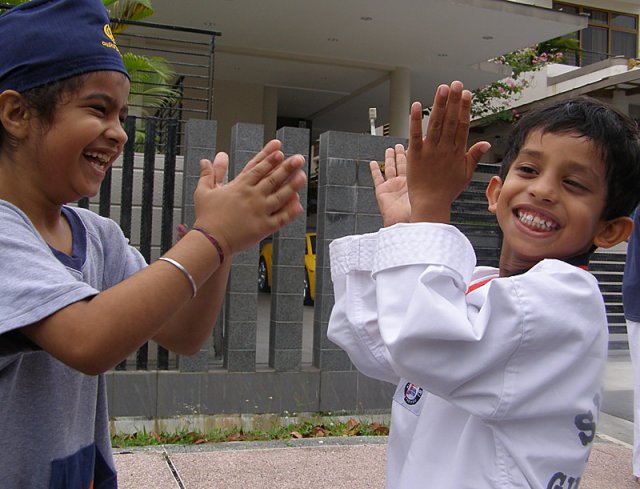
Everywhere we look we see issues dividing the inhabitants of this tiny planet – red states and blue states, religious people versus atheists, left versus right – not to mention the many emotive social issues that often puts people at daggers drawn against one another.
The unfortunate thing that the acrimony of these debates often prevent us from seeing those ‘on the other side’ as real people – people with hopes, dreams, feelings and problems just like us – and instead we choose as our social circle people with the same ideas and views. In this climate, it seems a miracle that there are still people who can stay friends despite having wildly different viewpoints – but there are, and the world is a better place for it. So, here are a few thoughts on keeping alive that flame of mutual respect and appreciation and not letting differences of opinion consume your friendship.
Resist the temptation to stereotype
Too often we are prone to characterize opposing political or religious viewpoints in a couple of contemptuous lines. In addition to its dehumanising effect, this summary often tends to be a distillation of all that we see ‘bad’ in the other position and can make people who hold that position seem much more extreme, so the two opposing positions seem impossible to bridge.
I was reminded of this when I watched a video of an extremely entertaining and illumining play, called Jefferson and Adams, describing the legendary relationship between the second and third Presidents of the United States. Originally close friends who worked together to draft the Declaration of Independence, they soon found their relationship increasingly strained due to their political positions – Adams was on the Federalist side which favoured closer ties with Great Britain and more centralized control, whereas the Republicans were led by Jefferson and favoured minimalist government. The relationship between the two very quickly deteriorated, the low point being the extremely acrimonious Presidential election of 1800 where the two sides characterized each other in most unfavourable (and often untrue) terms – it was so bad that afterwards Adams could not bring himself to attend Jefferson’s inauguration.
However, later on in life Jefferson and Adams reconciled and wrote long and touching letters to each other, which the play uses to create a dialogue between the two – one very moving scene is where they realise the stereotype they created of each other’s positions. “Did you really think I wanted to have an American King?” Adams asks; “Did you really think I wanted to have lawless mobs on the streets?” replies Jefferson, both with great sadness in their voices, as they recalled how this scaremongering on both sides misrepresented what they actually felt.
You can resist this temptation to stereotype by taking a couple of minutes to stand in your friend’s shoes. With your heart, really try to empathise with him or her, and why she feels the way she does. With the heart, you can also feel the qualities that made you friends in the first place, qualities that go far beyond any simple stereotype and transcend their stance on any particular issue. Continue reading “How to be friends despite having a different political or religious viewpoint”








 The word ‘love’ is perhaps one of the most casually used terms in the English language – so much so that it has become an umbrella term for a whole variety of very different emotions! There is one thing we all agree on – that love is what makes the world go round, and that without it, the world is but a dry empty shell of a place. On the other hand, it is a word we very easily twist around to our own purposes to justify our emotional dependence on a person. If we can learn to distinguish love from emotional dependence and put this distinction into practice, then we make life more beautiful not only for us, but for everyone we come into contact with.
The word ‘love’ is perhaps one of the most casually used terms in the English language – so much so that it has become an umbrella term for a whole variety of very different emotions! There is one thing we all agree on – that love is what makes the world go round, and that without it, the world is but a dry empty shell of a place. On the other hand, it is a word we very easily twist around to our own purposes to justify our emotional dependence on a person. If we can learn to distinguish love from emotional dependence and put this distinction into practice, then we make life more beautiful not only for us, but for everyone we come into contact with.